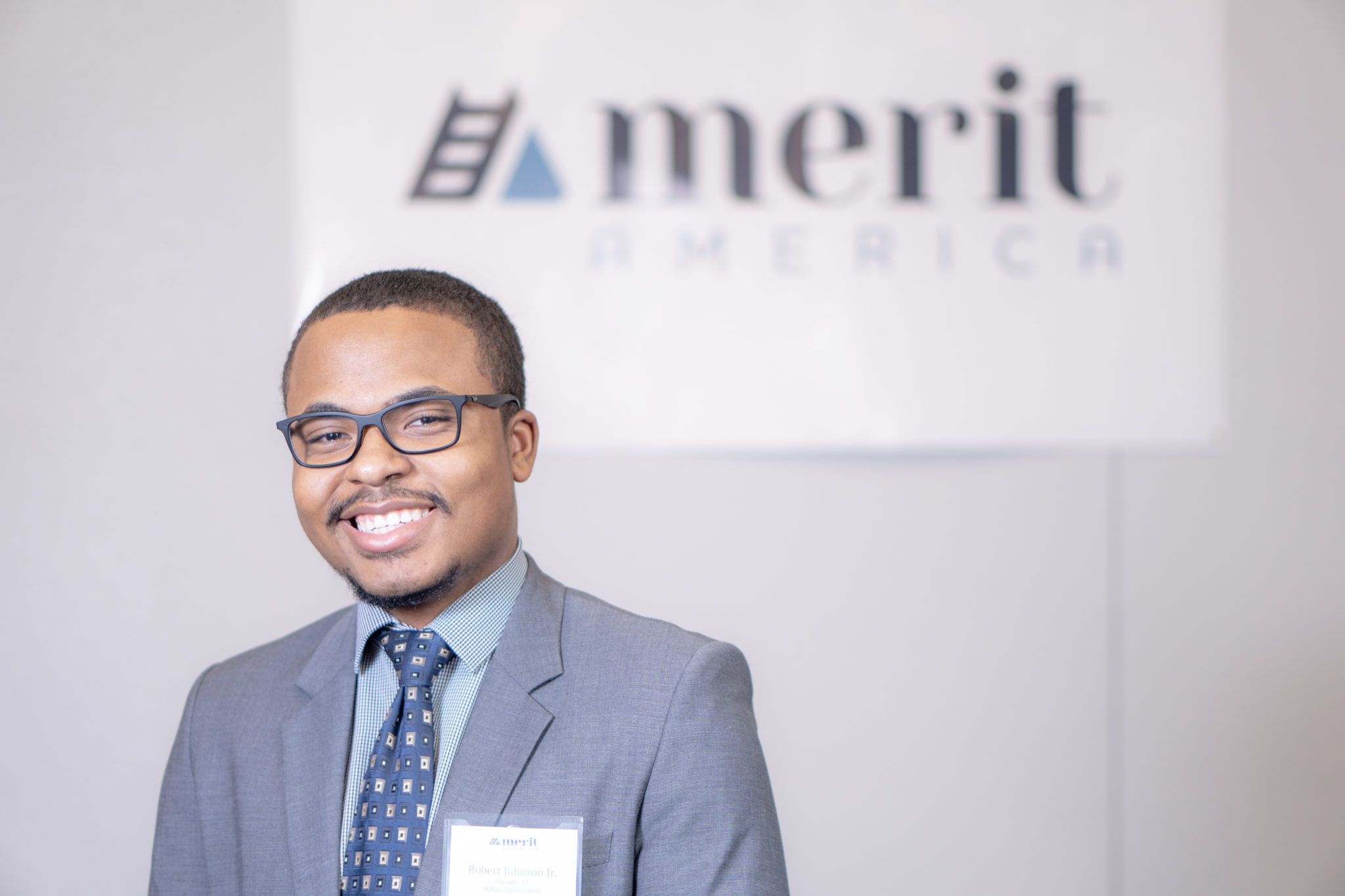

Even before the COVID-19 crisis consumed the news cycle and changed our day-to-day reality, the Morgridge Family Foundation (MFF) was supporting new initiatives to give young people and workers the skills they need to access prosperous jobs and livelihoods in the United States.
One of our partners leading innovation in this space, Merit America, provides a path to skilled careers in high-demand fields for adults without Bachelor’s Degrees. We caught up with Merit America’s Co-CEOs, Rebecca Taber Staehelin & Connor Diemand-Yauman, who reflected on COVID-19’s impact on workforce development, and the reasons why this issue is more important than ever:
Over the past few months, we’ve already begun to see the ways in which COVID-19 is upending our education and workforce systems. The pandemic has exacerbated existing inequities that already pervaded the U.S. labor market: workers without college degrees continue to be the first fired and the last hired. As a result, the frontline workers who are literally keeping the country going are likely to face the greatest barriers as we chart a path to recovery.
That said, there may also be some silver linings to this crisis. By exposing the ways that the existing system has failed, we’re also galvanizing new efforts to fix that system. In the wake of the pandemic, the future of education and work in the U.S. may include more collaboration between employers and training providers to tightly connect learning and earning. It will likely include a growing embrace of online programs, provided that they include the right support systems to ensure that students actually see tangible career outcomes. It will hopefully involve new approaches to financing education that don’t saddle learners with crushing debt before they’ve even had a chance to start their career.
We’ve seen firsthand how hard-working Americans can survive and thrive in this time with the right opportunities: people like Carlos Flores, who went from a frontline retail job to a high-paying career as a Data Center Technician at Amazon in the past month, because he was able to gain in-demand IT skills through accelerated, flexible learning.
Those of us on the front lines of education and work have an opportunity — and a responsibility — to make sure that Carlos isn’t the exception. Once-in-a-century events can shake us out of our complacency and enable us to more clearly see the cracks in the system. Let’s hope that we keep some of these lessons with us as we begin to navigate our way through the crisis in the coming months.
This piece was originally featured in the Virginia Economic Review series on the future of education.